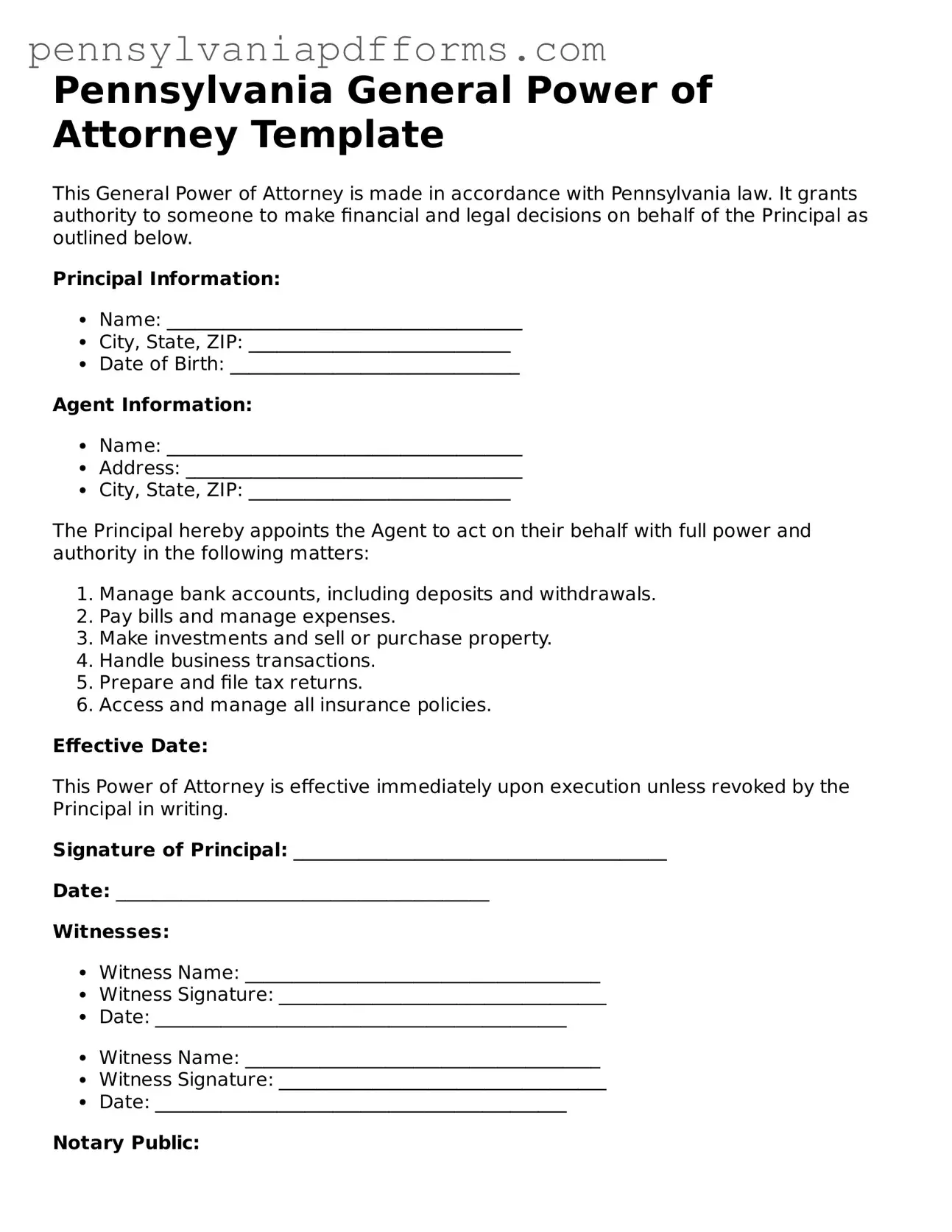Fillable General Power of Attorney Document for Pennsylvania State
A Pennsylvania General Power of Attorney form is a legal document that allows an individual, known as the principal, to grant authority to another person, referred to as the agent, to make decisions on their behalf. This form can cover a wide range of financial and legal matters, providing flexibility and convenience for the principal. To ensure your interests are protected, consider filling out the form by clicking the button below.
Access Editor Now

Fillable General Power of Attorney Document for Pennsylvania State
Access Editor Now
Almost there — finish the form
Complete General Power of Attorney online in minutes, fully online.
Access Editor Now
or
➤ General Power of Attorney File
